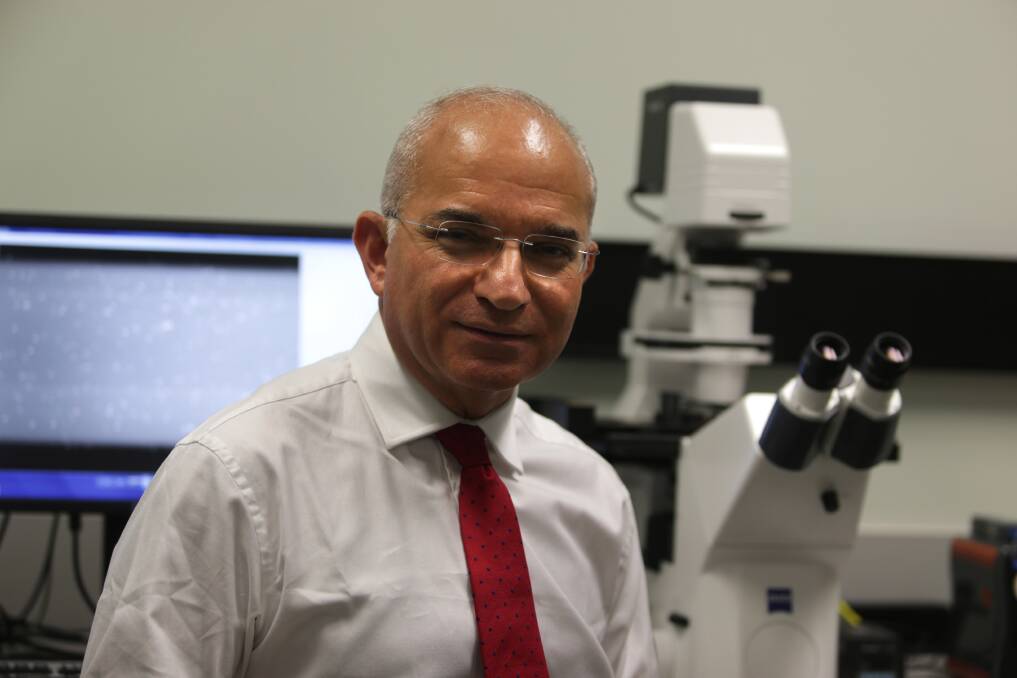
Research into how bacteria in the human body can transform health has the potential to benefit patients on a huge scale.
St George Hospital’s Microbiome Research Centre is leading the study of how microbiota play a vital role in our overall health and how it can prevent and cure diseases.
The refurbished centre is due to open in February 2019 but research is already underway in laboratories.
It is a collaboration between the St George and Sutherland Medical Research Foundation, the University of NSW and the South Eastern Sydney Local Health District.
This will be the only centre in Australia dedicated to undertaking research into human microbiota.
Once established, it will engage in research that contributes to Australian National Health Priority areas including cancer control, obesity, asthma and dementia.
The foundation received $4 million from the federal government to establish the centre, plus $1.5 million from the state government towards its completion.
Research will be undertaken across two clinical campuses at St George Hospital and Sutherland Hospital.
St George Hospital general manager, Leisa Rathborne, says the centre will be a world-class bio-informatics facility that aims to understand the cause and effect of specific bacteria, and translate those discoveries into effective treatments to save lives.
“Inside every one of us are trillions and trillions of bacteria and other microbes and each of these communities is known as microbiome,” Ms Rathborne said.
“Each person’s microbiome is as unique as a fingerprint and could hold the key to treating many conditions.
“Dysfunctional microbiomes are associated with chronic diseases including cancer, obesity, diabetes, asthma, Alzheimers and autoimmune diseases including multiple sclerosis and rheumatoid arthritis, and various neurodevelopment disorders like autism.”
Foundation chief executive Jacquie Stratford says this is the most significant breakthrough for medical research in the area.
“Microbiome research truly is the new frontier of medicine and this investment from government, along with the $1 million pledged by the South Eastern Sydney Local Health District and last year’s Commonwealth grant will progress our work immeasurably,” Ms Stratford said.
“It will put this area on the map in terms of research being done in the community.”
Leading this initiative is centre director, Professor Emad El-Omar, a global expert in microbiome research.
He says the study will not only help doctors better understand disease, but will assist in the development of more targeted drugs.
“This gives us not just an opportunity to treat disease but to prevent it,” Professor El-Omar said.
“Microbiome is relevant to many conditions, not just gastro-related ones.
“By analysing stools or blood, we can identify deficiencies and the good bugs in the bowels.
“We can manipulate bacteria from an unfavourable risk factor to something that actually works for us, unlike our genes, which we are stuck with.
“There are bigger institutes where scientists are fascinated with how bugs work, but we come to it from a different perspective as doctors – understanding people and disease, and embedding our research into a hospital setting.”
Professor El-Omar says the facility will improve research capacity by attracting more expert Australian-based and international researchers.
“There will be opportunities for the next generation of researchers in medicine and allied health specialities on offer at the centre,” he said.
“Their job is to diagnose what has previously been impossible to detect, and then to treat the conditions.
“It’s brilliant development for the area and it’s happening in our backyard.”
If you would like to support the research, donations can be made by calling 9098 4040 or click here.

